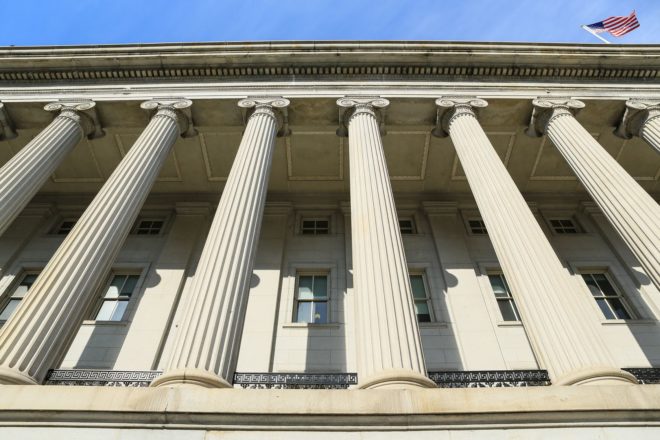Religious Liberty Wins at SCOTUS…Sort Of
 Today the U.S. Supreme Court decided Masterpiece Cakeshop v. Colorado Civil Rights Commission and overturned a decision finding that a baker illegally discriminated against a same-sex couple by refusing to bake a specialty cake for their wedding based on the baker’s orthodox Christian principles concerning marriage. The state Commission and lower courts found that the baker’s actions were contrary to the state’s public accommodation statute. The baker challenged the decision on grounds of free exercise of religion and free speech.
Today the U.S. Supreme Court decided Masterpiece Cakeshop v. Colorado Civil Rights Commission and overturned a decision finding that a baker illegally discriminated against a same-sex couple by refusing to bake a specialty cake for their wedding based on the baker’s orthodox Christian principles concerning marriage. The state Commission and lower courts found that the baker’s actions were contrary to the state’s public accommodation statute. The baker challenged the decision on grounds of free exercise of religion and free speech.
The Court punted on the free speech question, but decided that the Commission’s adjudication of this case violated “the State’s duty under the First Amendment not to base laws or regulations on hostility to religion or religious viewpoint.” The Court found hostility based on remarks from commissioners describing the baker’s religious beliefs about marriage as “one of the most despicable pieces of rhetoric that people can use to—to use their religion to hurt others.” The Court also noted that the commission compared the baker’s free exercise claim to grounds used to support the Holocaust and slavery. On top of this, the Court found that in other cases where bakers had refused to bake cakes containing Biblical statements condemning homosexuality, the Commission found no unlawful discrimination.
The Commission’s hostility was inconsistent with the First Amendment’s guarantee that our laws be applied in a manner that is neutral toward religion. Phillips was entitled to a neutral decision maker who would give full and fair consideration to his religious objection as he sought to assert it in all of the circumstances in which this case was presented, considered, and decided. In this case the adjudication concerned a context that may well be different going forward in the respects noted above. However later cases raising these or similar concerns are resolved in the future, for these reasons the rulings of the Commission and of the state court that enforced the Commission’s order must be invalidated.
This was the right result in this case, but the Court has done little to provide meaningful guidance as free exercise and free speech clash with public accommodation statutes making sexual orientation a protected classification. It is unlikely we will ever see another Commission decision that overtly expresses hostility to Christianity. With this opinion, we do not know if the artistic expression of a specialty baker is grounds for refusing to provide services under the First Amendment. We really don’t know what the Court will do with a similar case not possessing the unique circumstances of a biased decision maker.
So, religious liberty prevailed here. We have no clue what the result will be the next time. It seems the Court is aware of the rock-and-a-hard-place situation its recent sexuality and marriage jurisprudence has placed on orthodox Christians. There seems to be a desire to throw them a constitutional lifeline, but there’s also evidence of alligator arms fearing to push back too much against the prevailing spirit of the age.
***
William J. Watkins, Jr. is a Research Fellow at the Independent Institute and author of the book Crossroads for Liberty: Recovering the Anti-Federalist Values of America’s First Constitution.













